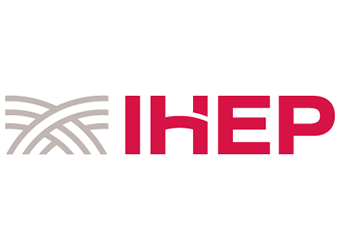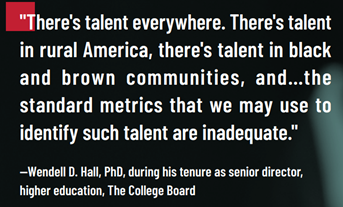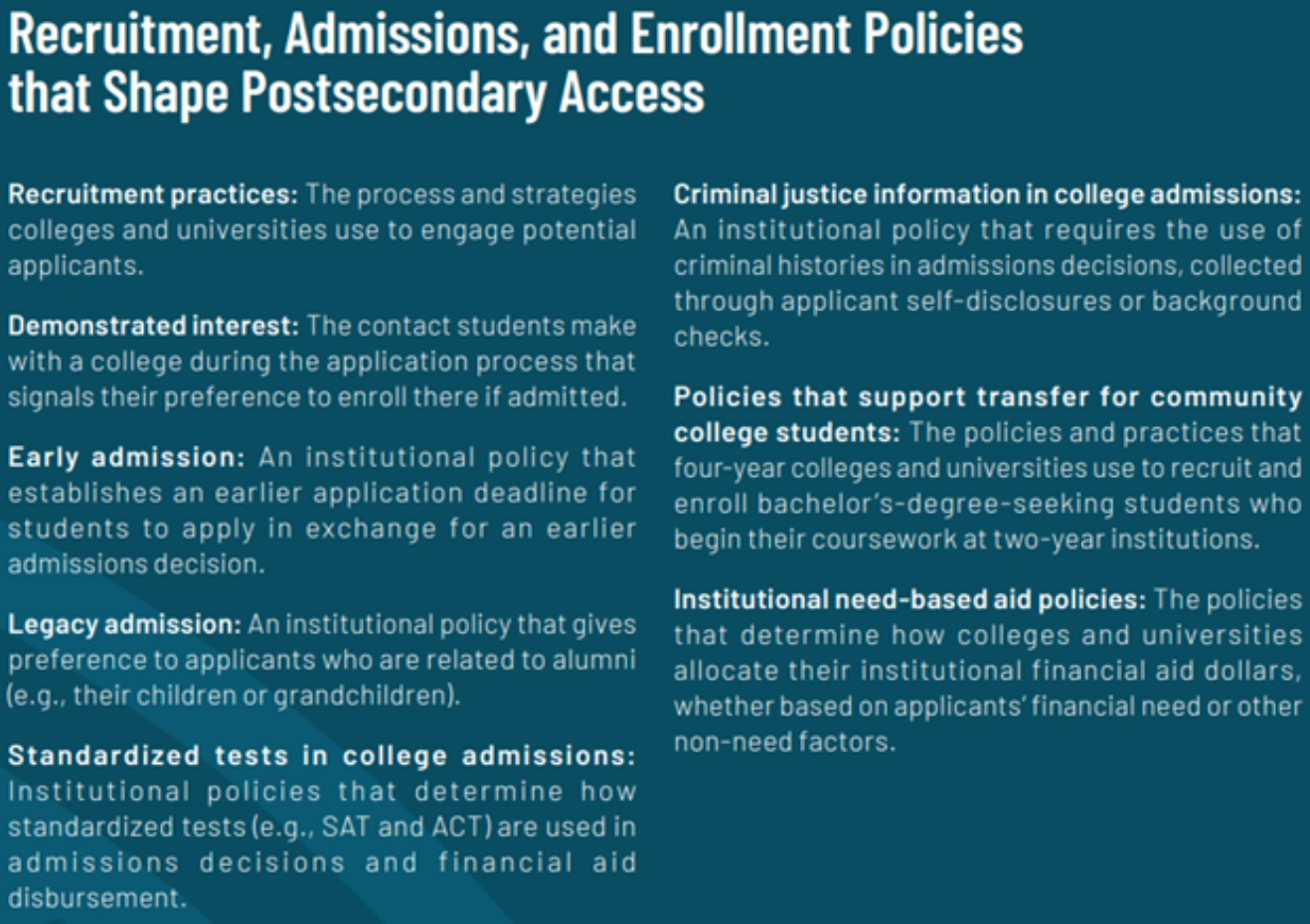 At FCAN, we believe that all Floridians need access to high-quality education after high school to build a talent-strong Florida. Yet, we know that opportunities in education and careers are inequitable, and there are significant gaps in degree attainment for Black, Latinx, and Native American Floridians.
At FCAN, we believe that all Floridians need access to high-quality education after high school to build a talent-strong Florida. Yet, we know that opportunities in education and careers are inequitable, and there are significant gaps in degree attainment for Black, Latinx, and Native American Floridians.
A June report from the Institute of Higher Education Policy (IHEP) addresses these gaps and seeks to put equity at the forefront of recruitment, admissions, and enrollment policies and practices. IHEP helpfully provides data-informed advocacy tools to drive change for 8 key practices that have inequitable impacts on historically marginalized students: recruitment, demonstrated interest, early admissions, legacy admissions, standardized tests, criminal justice information, transfer pathways, and need-based aid.
Based off a two-year study on recruitment, admissions, and enrollment policies, the 105-page report and its tools are worth digging into. The pandemic has shown institutions can change quickly when they need to, and the report offers specific suggestions for institutional leaders, lawmakers, and higher education professionals to increase access for all students.
IHEP acknowledges that admissions is a complicated process that balances state budgets, financial pressure, enrollment goals, and alumni relationships. However, colleges and universities have the power to address inequities through admissions practices and policies. Ultimately the report finds that many common policies seem neutral on their face, but in practice, act as barriers for Black, Latinx, Indigenous, and underrepresented Asian American and Pacific Islander (AAPI) students.
Click image to enlarge
For example, “demonstrated interest” policies consider the ways students engage with the institution, like clicking links in emails, visiting campus, calling admissions offices, or applying early. Many institutions consider demonstrated interest an important factor in admissions. This benefits students who can afford to visit campus or who may know institutions are, for example, tracking engagement with their emails. Yet, students from low-income backgrounds, rural areas, and first-generation students are less likely to know the importance of doing things like regularly visiting an institution’s website, clicking within their emails, or visiting campus.
In response, IHEP offers multiple recommendations to make demonstrated interest-based policies more equitable, including that institutions should ensure all students can engage with the institution during the admissions process. That may mean more purposefully recruiting in diverse locations, and/or subsidizing on-campus visits for students from low-income backgrounds.
Another policy in the IHEP report that has gotten its share of the spotlight this past year is standardized tests. Although many universities went test-optional in response to the pandemic due to limited access to testing sites — meaning students are allowed, but not required, to submit test scores — Florida was the only state to require either the ACT or SAT for 2021 state university admissions. While early reports this past fall suggested some Florida universities were experiencing a decline in applications due to test requirements, many, including the University of Florida, Florida State University, and Florida Polytechnic University, have since reported record application rates. With equity and the impact of standardized test requirements in mind, we will likely get a clearer picture in the fall of which students applied and were accepted to Florida universities.
 The IHEP report argues that standardized tests perpetuate racial and socioeconomic inequalities and suggests institutions should embrace test-optional policies or eliminate the requirement altogether. The report cites a myriad of reasons why tests exacerbate inequality, including how disparities within the K-12 system result in inequitable test performances, and wealthier students tend to spend large amounts of money on test preparation. But ultimately, research shows that high school GPA is a better predictor of college success than a standardized test score. To truly operate equitable admissions policies, IHEP wants institutional leaders to rethink the role of standardized tests.
The IHEP report argues that standardized tests perpetuate racial and socioeconomic inequalities and suggests institutions should embrace test-optional policies or eliminate the requirement altogether. The report cites a myriad of reasons why tests exacerbate inequality, including how disparities within the K-12 system result in inequitable test performances, and wealthier students tend to spend large amounts of money on test preparation. But ultimately, research shows that high school GPA is a better predictor of college success than a standardized test score. To truly operate equitable admissions policies, IHEP wants institutional leaders to rethink the role of standardized tests.
Noticeably, the report identifies transfer pathways as a policy that can exacerbate inequality – however, this is one area Florida shines. Florida’s articulation agreements have long been held as model policy across the nation. In the report, IHEP calls out the University of Central Florida DirectConnect to UCF program as a promising approach for recruiting and guiding two-year students through the transfer process to four-year universities.
While this report details the national effects of inequitable access to education after high school, this is also a Florida issue. The top 10 fastest-growing jobs in Florida all require degrees or certificates beyond high school; however, there are significant gaps in degree attainment for Black, Latinx, and Native American Floridians. Increasing postsecondary education rates in Florida for Black, Latinx, and Native American Floridians means a more competitive state economy and a workforce prepared for the future.
RELATED ARTICLES:
Putting equity at the center of postsecondary value
From Transfer to Targeted Pathways: Florida’s efforts to get transfer students to the finish line

